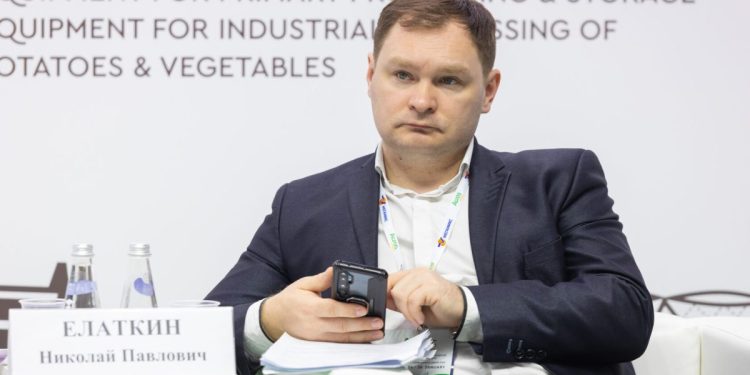#Russianagriculture #potatoindustry #retailchains #domesticreeding #consumerdemand #agriculturalinnovation
Major retail chains like “Magnit” and “Pyaterochka” are tapping into the significant potential of selling domestically bred potatoes to consumers. With inherently high trust in Russian food products among the population, the challenge lies in effective marketing strategies for such produce. This article delves into the current trends and initiatives in the Russian potato industry, exploring the shift towards homegrown varieties and the strategies employed by retail giants to meet consumer demand.
In 2021, according to Rosstat data, potato consumption per capita in Russia stood at 84 kilograms per year, while vegetable consumption reached 104 kilograms.
Ilya Gamov, Director of Agro-Industrial Production at the retail chain “Magnit,” revealed that the company has its own greenhouse farms, producing mushrooms and open-field vegetables, and ranks as one of the main potato sellers in Russia. The volumes of sales for vegetable sets, including potatoes, amount to 1 million tons per year, with 500,000 tons attributed to potatoes. In 2024, the areas under domestic varieties have seen a significant increase. “Magnit” collaborates with 250 farms across Russia through agricultural contracts, utilizing advance payment schemes for potato procurement.
“Next year, we plan to become leaders in supplying our network with seed material of domestic breeding, particularly for potatoes. To become such a distributor,” stated Gamov.
The first tasting of domestically bred potatoes was conducted in January at “Perekrestok” stores, as per X5 representative Ivan Korabelnikov.
“If three factors – taste, appearance, and regular supply – meet the needs of the networks, I think there will be no problems. In terms of food products, consumers trust Russian goods more. And if we explain to the consumer what domestic breeding potatoes are and how they differ from foreign ones, I don’t think there will be any problems with demand,” said Korabelnikov.
Nikolay Elatkin, CEO of LLC “Miratorg-Genetics,” reminded that in 2023, the company initiated a project for producing French fries for the “Vkusno i Tochka” network, with a processing capacity of 250,000 tons of industrial varieties. The enterprise independently built the “science-retail chain” connection. Potatoes are grown on the Baltic coast, in the clean coastal zone of the Kaliningrad region.
“Now we have close cooperation with the Ural Research Institute of Agriculture. We have already successfully implemented several projects with them on table potato varieties and started scaling their achievements precisely with industrial potato varieties. In some aspects, many varieties even surpass foreign ones in technology and adaptability to growing conditions; they are just less promoted and ready for the market. Foreigners still offer a comprehensive solution, and we want to replace this lack of domestic varieties with our technologies,” said Elatkin.
The Russian potato industry is witnessing a transformation with retail giants recognizing the potential of domestically bred varieties. Collaborations between retailers and agricultural institutes are driving innovations, aiming to meet consumer demands for quality, taste, and regular supply. As the market shifts towards homegrown produce, opportunities for local farmers and advancements in agricultural technologies continue to expand, promising a brighter future for the Russian potato sector.






